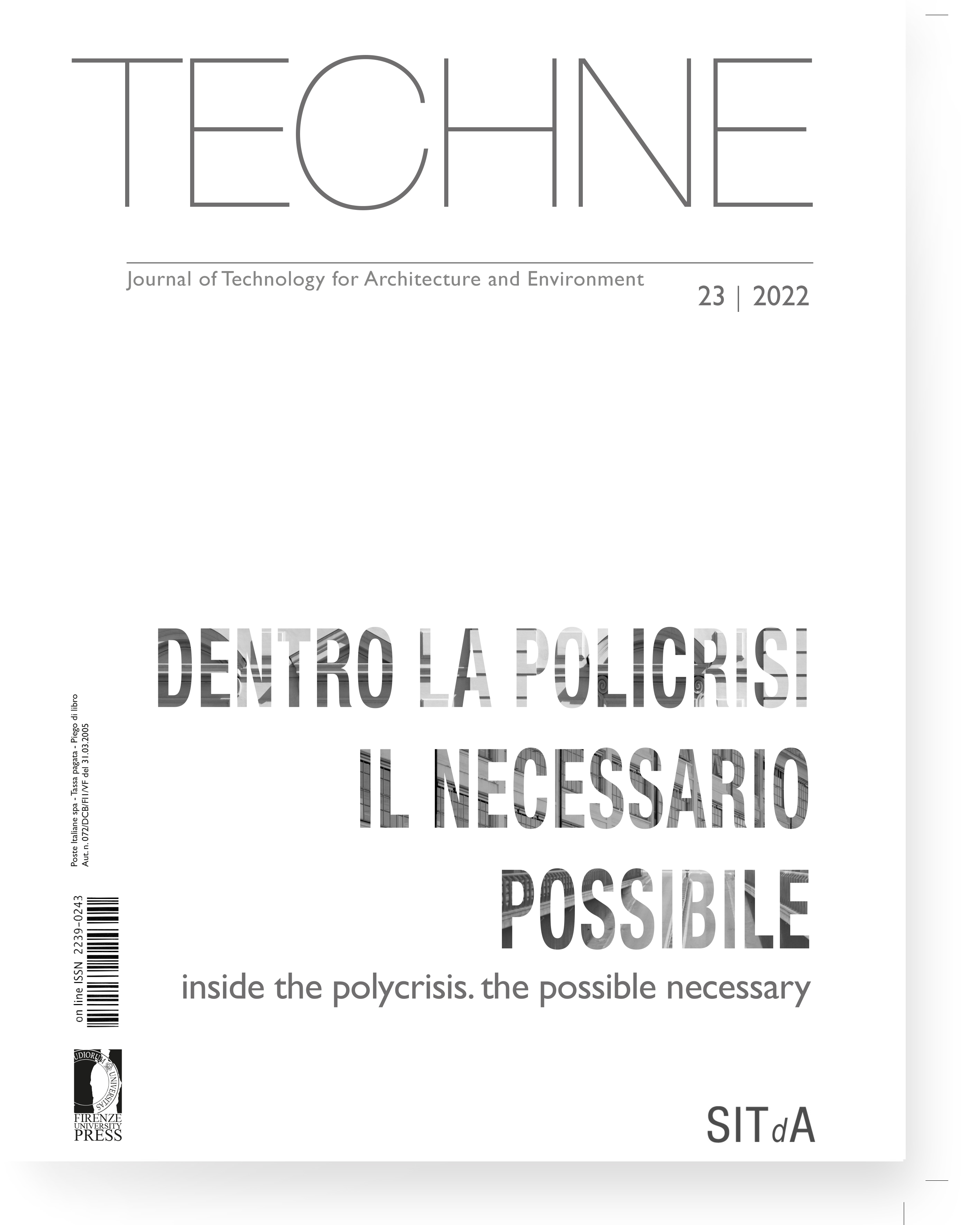The sharp changes in demand accelerated by the pandemic. The response needed to raise the quality of life in cities
Published 2022-03-17
Keywords
- Transformation of social demand,
- real estate market,
- construction sector,
- business models
How to Cite
Abstract
The contribution illustrates the dynamics of the change that has affected the demographic and
socio-economic structure and characteristics of the country over the last 10-15 years, highlighting
how the pandemic crisis has significantly accelerated the processes of transformation of social
demand. With the emergence of new trends, lifestyles and sensitivity to the urban context that
induced a significant transformation of the real estate market: greater attention to the quality of city
life and living spaces in terms of eco-sustainability, comfort, flexibility of use and efficiency
(management, energy, etc.). An impact that has also extended to the non-residential sector in
terms of a new demand for spaces, products and services (increase in smart working and
collaborative work spaces, greater attention to comfort and indoor environmental quality, etc.).
These changes have an impact on the supply of the real estate market, generating new products
and services, new business models, new entrepreneurial players, with a market complexity that
registers the growth of the size of the new operators in the construction supply chains and the
volume of investments in the field. This is a challenge that concerns all market players, public and
private, to which it is necessary to respond with adequate business models (in terms of size,
internal governance styles and ownership structures), according to the entrepreneurial and
management forms typical of an evolved industrial sector.






